 One of the great discoveries I made in my health-recovery journey was learning that food can be medicine. Ann Wigmore said it best, I think: “The food you eat can be either the safest and most powerful form of medicine or the slowest form of poison.”
One of the great discoveries I made in my health-recovery journey was learning that food can be medicine. Ann Wigmore said it best, I think: “The food you eat can be either the safest and most powerful form of medicine or the slowest form of poison.”
You’re either eating foods that are health-supportive or health-destructive. The Standard American Diet (SAD)’s processed foods are not only virtually void of any nutrients, but they are also typically full of harmful ingredients like artificial colors, artificial flavors, high fructose corn syrup, preservatives and additives like MSG, hydrolyzed vegetable protein and other neurotoxins.
If you’ve read my blogs before, you know that I believe that whole foods are health-supportive. Whole foods are ones that look very much like what they did when they were alive and growing.
For example, instead of thinking that whole-wheat bread is a whole food (it’s not), think instead about where the flour came from: the wheat berry.
For a health-supportive diet, a whole-foods diet is the basis for feeling better. I recommend that, in addition to this, you look at foods that are anti-inflammatory in nature. These are typically herbs and spices, as well as brightly colored fruits and vegetables.
Traditional Diets
In my love of cooking and search for health for myself and my family, I have also discovered that traditional diets are very health-promoting. Think about it: before people had refrigeration and preservatives, how did they eat?
They ate foods that had been preserved with salt, fermentation or by drying. They also ate foods that were only in season, which is a core tenet of the macrobiotic diet. And they also prized herbs and spices not only for their strong flavors, but also for their medicinal properties.
In fact, most, if not all, ancient medicinal traditions use herbal medicine. Some of these herbs and spices are ones that are eaten daily, and some are used for medicinal purposes only.
Anti-Inflammatory Spices
South Asian foods from India are examples of foods that contain a lot of two of my favorite anti-inflammatory spices, turmeric and ginger.
Turmeric is not only anti-inflammatory, but it’s also anti-fungal, anti-aging, anti-cancer (anti-mutagenic), anti-diabetic and lowers symptoms of dementia. It’s great for the pains of arthritis and headaches, protects against damaging effects of radiation, protects against heavy-metal toxicity.
What’s not to love about turmeric besides the fact that it’ll stain your hands and clothes yellow if you’re not careful?
Ginger is another powerhouse food that has been used in both Ayurvedic and Traditional Chinese Medicine for thousands of years. In Western cultures, we typically think of ginger as a nausea reliever, but ginger is a powerful anti-inflammatory spice as well.
Ginger also reduces symptoms of dementia seen in Alzheimer’s (likely because of its anti-inflammatory properties), and it’s also anti-cancer, anti-microbial, anti-diabetic and anti-viral. In addition, it decreases the pain from working out too hard as well as from migraines. Consumption of ginger has been proven to lower blood pressure, too.
You don’t have to eat South Asian foods to get these spices into your diet, although I will say I love Indian and Asian food! To get you started in incorporating turmeric and ginger into your diet, I’ve provided a couple of my favorite recipes:
 I’ve said it before, and I’ll say it again: Sugar is as addictive as drugs! Sugar activates the same pleasure centers in your brain that hard drugs like morphine and heroin do, and you get a dopamine rush from consuming it. No wonder it’s so hard to give up!
I’ve said it before, and I’ll say it again: Sugar is as addictive as drugs! Sugar activates the same pleasure centers in your brain that hard drugs like morphine and heroin do, and you get a dopamine rush from consuming it. No wonder it’s so hard to give up! In the fall of 2013, I attended “
In the fall of 2013, I attended “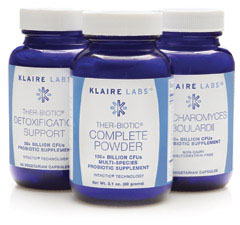 I’d like to let everyone know that I am now offering my clients world-class probiotics from Klaire Labs and supplements from their parent company, ProThera.
I’d like to let everyone know that I am now offering my clients world-class probiotics from Klaire Labs and supplements from their parent company, ProThera. Nutritional deficiencies are rampant. I believe many people are falsely lulled into a sense of security by RDA (recommended daily allowances) listings on food and nutrients.
Nutritional deficiencies are rampant. I believe many people are falsely lulled into a sense of security by RDA (recommended daily allowances) listings on food and nutrients.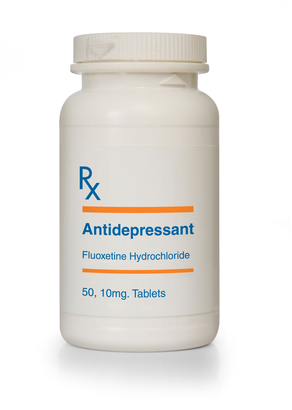
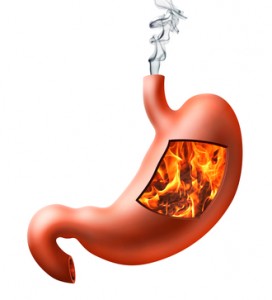 Believe it or not, acid reflux medication dangers are real, and these medications do major harm to your body. Shocking, right?
Believe it or not, acid reflux medication dangers are real, and these medications do major harm to your body. Shocking, right?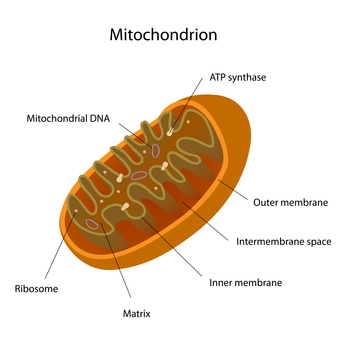 Because of my son’s failure to thrive, our pediatrician sent us to see
Because of my son’s failure to thrive, our pediatrician sent us to see  A deficiency of vitamin D has now been linked to yet another chronic condition:
A deficiency of vitamin D has now been linked to yet another chronic condition: 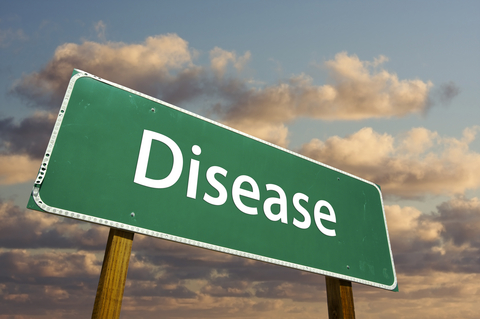 Methylation is a subject that keeps coming up again and again for my sons and myself. It’s one of those all-encompassing issues like toxicity or gut dysbiosis because so many diseases and conditions are linked, directly or indirectly, to it or rather, a lack of it.
Methylation is a subject that keeps coming up again and again for my sons and myself. It’s one of those all-encompassing issues like toxicity or gut dysbiosis because so many diseases and conditions are linked, directly or indirectly, to it or rather, a lack of it.

